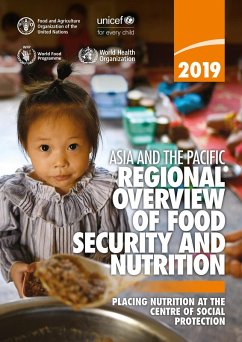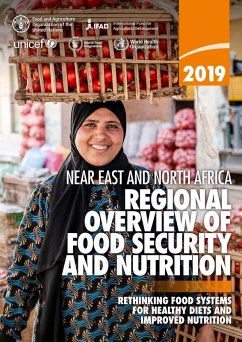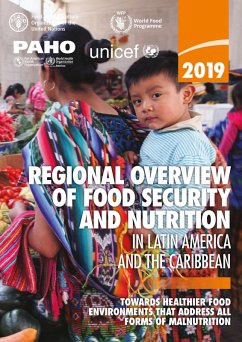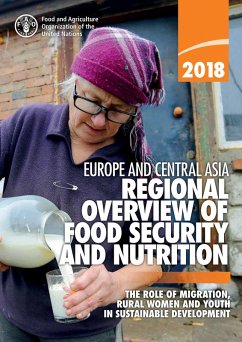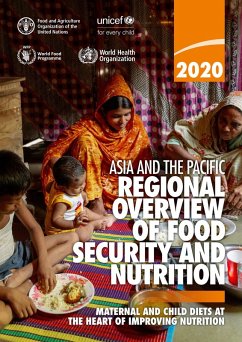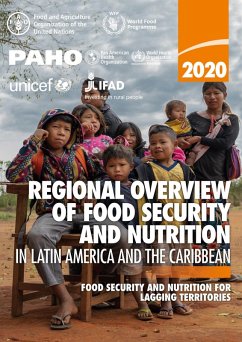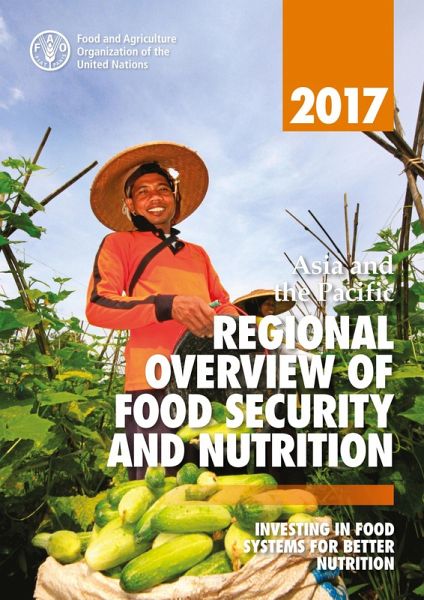
Asia and the Pacific Regional Overview of Food Security and Nutrition 2017: Investing in Food Systems for Better Nutrition (eBook, ePUB)

PAYBACK Punkte
0 °P sammeln!
Malnutrition and stunting among children below the age of five remains high in many countries in the region, with large disparities among population groups. Recent initiatives -such as multisectoral approaches, amended policies and interventions that are more nutrition-sensitive - are helping, but these efforts need to be considerably scaled up. More people in Asia and the Pacific region are moving towards healthier diets, although the availability of nutritious foods is still inadequate in many countries. However, on average, the consumption of food items considered unhealthy is also on the r...
Malnutrition and stunting among children below the age of five remains high in many countries in the region, with large disparities among population groups. Recent initiatives -such as multisectoral approaches, amended policies and interventions that are more nutrition-sensitive - are helping, but these efforts need to be considerably scaled up. More people in Asia and the Pacific region are moving towards healthier diets, although the availability of nutritious foods is still inadequate in many countries. However, on average, the consumption of food items considered unhealthy is also on the rise. A key challenge is to reorient food systems in a way that will help promote healthier diets through supportive food and trade policies, education and awareness campaigns. Smallholder farmers need better access to more profitable markets if they are to escape poverty and food insecurity. While some technical assistance projects have been effective in improving rural livelihoods, it is essential to address systemic weaknesses at the national level by promoting farmer organizations, investing in improved rural infrastructure and improving the functioning of rural financial markets. In view of the overall trend in declining food prices in recent years, and a relative abundance of food, there is less public concern over the state of food security; nevertheless, it is important that governments and other stakeholders not become complacent. Given the fundamental importance of food in both production and consumption for the poorest of the poor, stepped up investments in the food economy will be essential if we are to achieve the SDG goal to "leave no one behind." Reducing food loss and waste offers a triple win - for food security, higher farm income and the environment. While current knowledge on the extent and incidence of food loss along the supply chain, or hotspots in the chain, is inadequate, recent government initiatives addressing this challenge are encouraging.
Dieser Download kann aus rechtlichen Gründen nur mit Rechnungsadresse in A, B, CY, CZ, D, DK, EW, E, FIN, F, GR, H, IRL, I, LT, L, LR, M, NL, PL, P, R, S, SLO, SK ausgeliefert werden.




